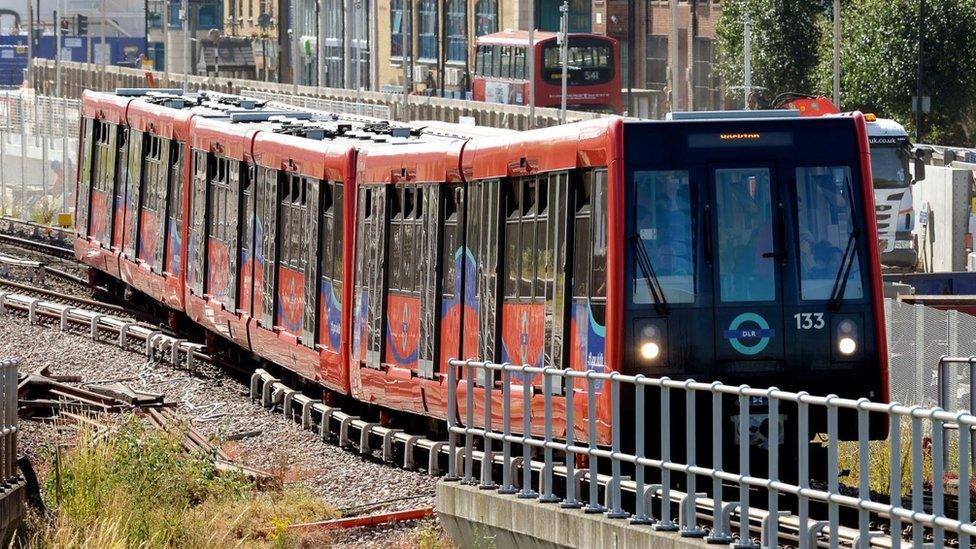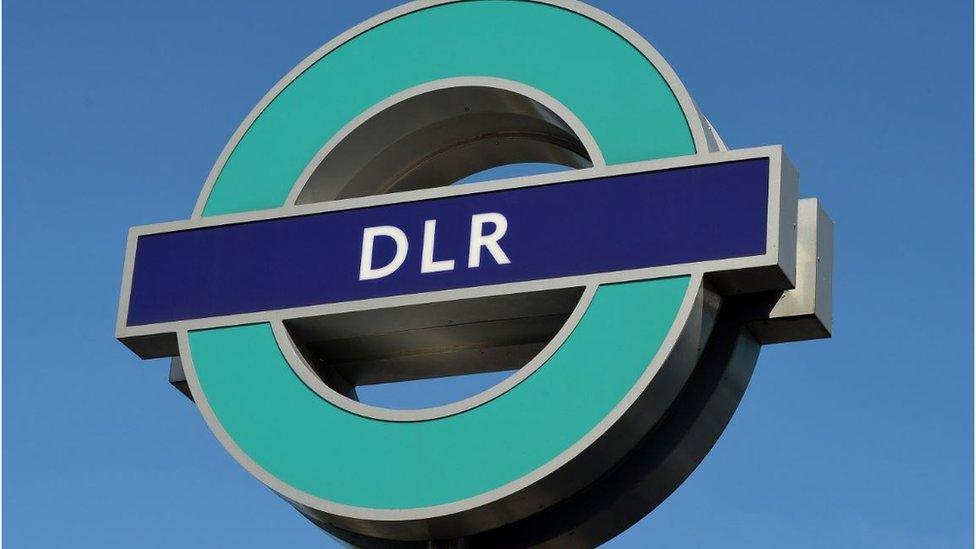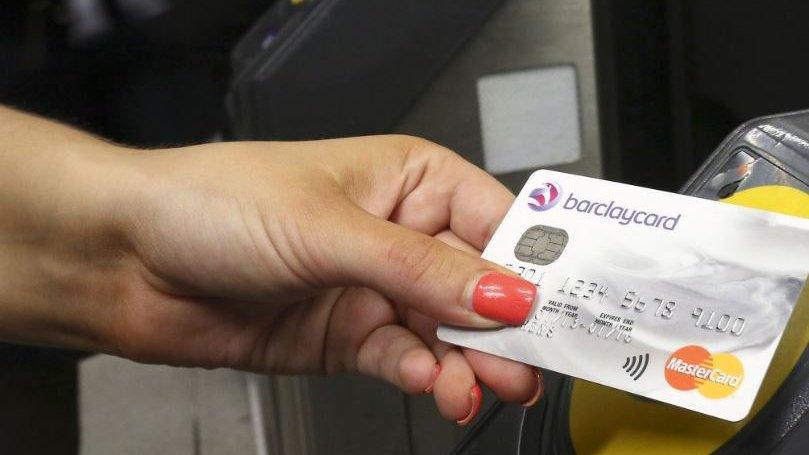Docklands Light Railway fare evaders dodge almost £11m in decade
- Published

The latest data was revealed at a London Assembly meeting
Fare evaders on the Docklands Light Railway (DLR) cost Transport for London (TfL) almost £11m over 10 years, new data has revealed.
The transport authority said that between 2010 and 2020 the value of fares evaded on the DLR was just under £10.9m.
The number was discussed at a transport committee meeting on Monday.
Richard Graham, of DLR franchise operator KeolisAmey Docklands, said evasion was taken "very seriously".
He said that several groups of staff, called "revenue blocks", had been placed at the entrances and exits of stations to try and ensure fares were paid.
Mr Graham said: "A large chunk of the network is gateless, it doesn't have ticket gates in the same way the London Underground does, and we run approximately 40 revenue blocks a period to control fare evasion."
The managing director said that data from staff at stations had estimated slightly more than 1% of commuters do not pay fares on the DLR network.
However, Transport for London (TfL) travel surveys estimated this figure might be as high as 4%.
Mr Graham said the difference in the data might be due to people deliberately staying away from stations with staff present to avoid being fined.
He added that staff were also present on DLR trains to check tickets and issue fines.

The evasion figures could be from passengers not seeing where to touch in and out, the meeting heard
Tom Page, general manager of the DLR, said at the meeting that differences in data might also come from passengers not touching in or out if they had special ticket types such as Freedom Passes.
He added that the number of passengers dodging fares on the DLR was similar to other ungated forms of public transport in London, such as trams and sections of National Rail services.
Trish Ashton, director of rail and sponsored services at TfL, said the transport authority had started trialling projected notices at stations to highlight the kiosks to commuters.
Ms Ashton said: "We found that changing what people see is actually a bigger aid to letting people know where they are, whereas a sticker quite quickly becomes wallpaper.
"We absolutely are akin to the idea that people are missing the validators and doing everything to make sure we publicise them."

Listen to the best of BBC Radio London on Sounds and follow BBC London on Facebook, external, X, external and Instagram, external. Send your story ideas to hello.bbclondon@bbc.co.uk, external
Related topics
- Published20 October 2023
